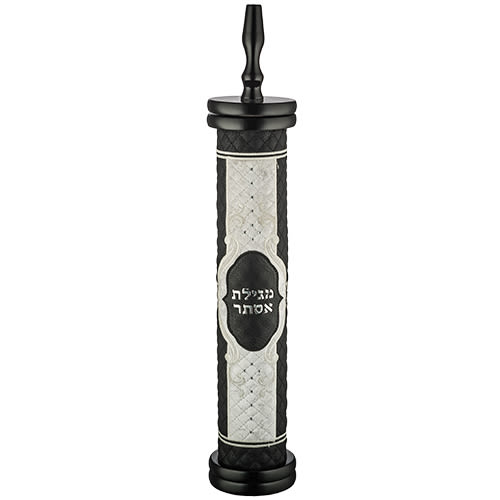
Looking for the Light
Every time we use the power of prayer to overcome a difficult situation, we enhance our awareness of HaShem's magnitude...

Your Path
Life’s difficulties serve another important purpose – they help lead each of us on the path of our individual mission on earth. If we don’t understand the underlying message within the trying situations we encounter, then all we have to do is ask HaShem to guide us and help us understand. With relentless personal prayer, we are assured to find our individual path in the world.
Looking for the Light
Every time we use the power of prayer to overcome a difficult situation, we enhance our awareness of HaShem’s magnitude. Stress and anxiety result from a lack of spiritual awareness that’s tantamount to darkness. Recognition of HaShem is the Light that illuminates the darkness. Consequently, when we "look for the Light," in other words, when we search for the Divine message within tribulations and realize that HaShem is using them to stimulate our personal and spiritual growth, despair becomes hope. Life’s overwhelming situations become challenges that we’re ready to meet when we look for the Light within the darkness.
My Soul Thirsts
We live in a world that conceals and diminishes HaShem’s Light. Our bodies block and subdue the Divine illumination of our souls. Yet, life’s trying times are what cause the soul to yearn for its Creator. Since the soul is spiritual, it thirsts for Godliness. Nothing can satiate it other than HaShem’s Divine Light, as Dovid HaMelech (King David) wrote (Tehillim 42:3), "My soul thirsts for HaShem, for the living God."
The soul derives virtually no gratification from material amenities. A long list of celebrities had everything a person could dream of – money, vacation homes, swimming pools and tennis courts in their back yards, fame, and literally anything that money could buy – yet many of them became insane or committed suicide. They had everything but they had nothing.
When the soul feels darkness, it becomes restless. The feeling of unrest, emptiness, and a squirming sensation in the abdomen indicates the soul’s longing for HaShem. By searching for HaShem’s Light, the soul attains proximity to HaShem. HaShem illuminates the soul’s darkness, thus helping the soul to overcome its difficulties. As a result, the soul gets to know, love, and appreciate HaShem more and more.
An On-going Saga of Difficulties
The more a person has problems, the more he or she is likely to seek HaShem, just as a person in darkness seeks the light. Even if a person seeks HaShem just for the sake of relief, and not for the loftier motive of adding Godliness to his or her life, they still discover HaShem’s infinite mercy and compassion.
The Talmud says (Tractate Nedarim 81a), "Beware of the sons of the poor, for they shall become the scholars of Torah." The struggles of lads from impoverished families stimulate them from a young age to seek HaShem; they subsequently develop a strong measure of emuna and thirst for Torah.
Dovid HaMelech suffered untold difficulties from a tender age and thereby sought HaShem constantly, ultimately reaching the level of a prophet and HaShem’s anointed. He composed Sefer Tehillim (Book of Psalms), the world’s foremost collection of personal prayers. Our Sages teach us that our ancestral mothers Sarah, Rivka (Rebecca), and Rochel (Rachel) were barren because HaShem wanted to extract their prayers. If they would have had children with no difficulty, they’d certainly have prayed much less, both in quantity and in intensity. If we examine the lives of the great tzaddikim, we find almost always that their lives were an ongoing saga of one difficulty after another.
Life’s difficulties are a clear sign that HaShem wants to bring us closer to Him.
Obstacles Enhance Desire
Rebbe Nachman of Breslev writes (Likutei Moharan I:66), "The degree of longing is enhanced by the obstacles that stand in the way of the goal, for when a person is prevented from attaining his wish, then his desire is greatly enhanced."
With the above principle in mind, we can view the difficulties, troubles, trials, and tribulations of life in a positive light. As soon as a person encounters difficulty, he or she should arouse their desire and longing for HaShem, for the very purpose of trying situations is to bring a person closer to HaShem.
Yermiyahu (Jeremiah) the prophet says (Yermiyahu 30:7), "It will be a time of trouble for Yaakov (Jacob), but from it shall he be saved." In other words, the dire situation that HaShem saves Israel from is the catalyst that drives the Jewish people closer to HaShem. The serious trouble stimulates them to pray from the depths of their souls and to seek HaShem. As such, the trouble is ultimately a gem of untold value. HaShem says (Yechezkiel 33:11), "I do not desire the death of the wicked, but that he should return from his evil ways and live."
HaShem doesn’t want people to suffer; He wants them to live upright lives and to be happy. Life’s difficulties are wake-up calls to initiate soul-searching on two levels, namely, to prod a person to seek HaShem and to stimulate teshuva and character development. If a person were always successful, he or she would most certainly become smug and arrogant, never seek HaShem, and never correct a single character flaw. So, when people have everything, they really have nothing.
Joy of Living
Life is joy and happiness. Only a happy person can be called "alive." Practically speaking, "life" and "happiness" are synonymous, since life indicates a joyful state (just as conversely, death indicates a forlorn state). Many people have beating hearts and functioning lungs, but they lack the joy of living, for they lack emuna. Rebbe Nachman of Breslov teaches that without emuna, life isn’t worth living; the smallest difficulties in life sink the non-believer into sadness, depression, and despair. Without emuna, a person suffers from worry, stress, confusion, and self-persecution.
Rebbe Nachman explains that the non-believers are incapable of understanding or effectively coping with situations that don’t go according to their plans or wishes. They feel helpless at the hands of "fate" and "nature" that torture them with no rhyme or reason. On the other hand, people with emuna seldom lose composure, since they realize how life’s trying times are for their ultimate best. Consequently, they live joyful and sweet lives, in this world and in the next.
Agnostics and atheists have no life in this world or in the next. If you check closely, you’ll find that beneath the veneer of an artificial smile, you’ll find them to be anxious, worried, and stress-ridden. Their lives are full of inexplicable difficulties, day-to-day struggles of survival or a never-ending chase for material amenities that almost always elude them. The believer, in contrast, understands what he or she is doing in the world and how life’s challenges are milestones for personal and spiritual growth designed to accomplish a clearly defined goal.
To taste the joy of life, one needs emuna. Knowing that everything in our lives is an eternal gift from our loving Father in Heaven for the very best provides the joy of life that fuels inner strength. With emuna, a person is also able to put the difficulties of this life in proper proportion, especially when looking at the ultimate goal of eternal bliss in the next life.
To be continued…













Tell us what you think!
Thank you for your comment!
It will be published after approval by the Editor.